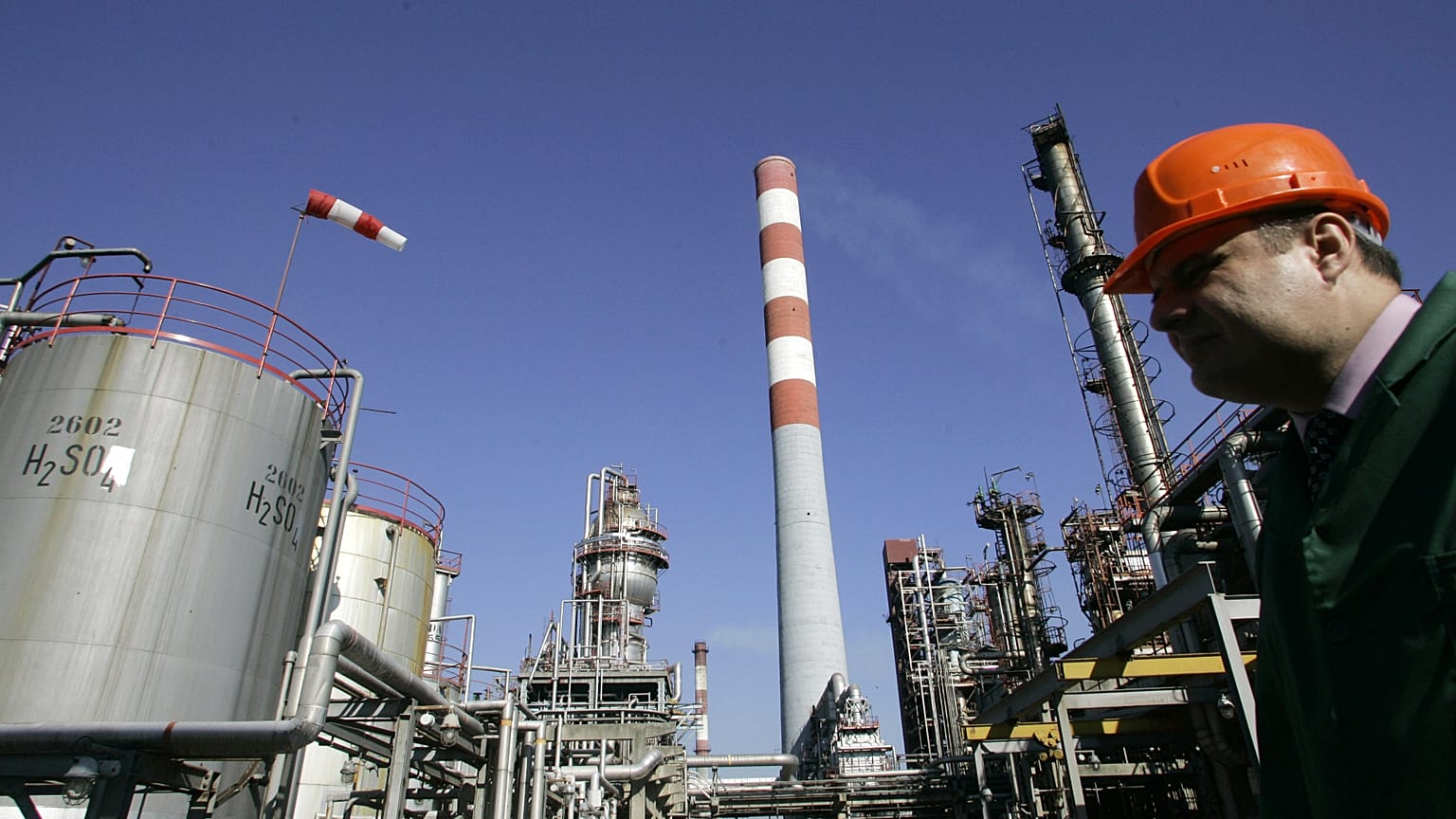Serbian President Vučić warns of a major crisis as the country's largest oil refinery faces shutdown unless US sanctions authorities approve a license by Thursday.
Serbian President Aleksandar Vučić has warned the Western Balkan country faces a major crisis as its largest oil refinery prepares to shut down unless US sanctions authorities approve an operating license by Thursday.
The Petroleum Industry of Serbia (NIS) refinery is currently operating in "warm circulation" — a reduced-capacity mode — and has four days until complete shutdown unless approval comes from the US Office of Foreign Assets Control, Vučić said in an address to the nation.
"It will take 14 days to restart, but in reality it will be more than that. Count on 20 days or more," he said. "That means the refinery would not be operating until the New Year and even after that."
Banking system at risk
The Serbian president outlined severe potential consequences if the refinery shuts down, warning that Serbia's entire financial system could be affected.
"The National Bank of Serbia has received a warning, as have all commercial banks that do business with the Petroleum Industry of Serbia, that they could become subject to sanctions," Vučić said. "This means we are ultimately and definitively putting both our commercial banks and our central bank at risk."
He warned this could lead to "complete suspension of payment transactions and services for the population, the shutdown of payment card services, the cessation of loan issuance, and everything else."
Meanwhile, the National Bank of Serbia announced it will suspend payment transactions with NIS if the company does not obtain a business license by the deadline, stating this is necessary to protect "the stability of the domestic financial system."
Vučić said Serbia had the right of first refusal to purchase NIS four times since 2022 but never exercised it, allowing Russian owners to sell to other Russian entities.
"We wanted to show respect to the Russian side, because we do not consider sanctions a fair instrument in international trade," he said.
The company's ownership changed three times in 2025 alone — in February, May and September — as Russian owners attempted to adapt to sanctions while continuing operations.
Personal guarantee given to US
Vučić revealed he provided personal guarantees to US authorities regarding sanctions compliance after they requested additional assurances from Serbia.
"The Americans asked for my publicly given word, and I gave it," Vučić said, though he estimated only a 40% chance the license would be granted.
He rejected calls for nationalisation of the refinery at a government session on Monday, saying Serbia needs to give time to partners from the United Arab Emirates and Hungary who are negotiating with Russian owners.
Vučić appealed directly to US authorities to grant the license.
"If you allowed the Russian banking sector to finance nuclear power plants through OFAC, but you do not grant us a license, then just think about whether you are being fair to Serbia," he said.
Vučić explained NIS has begun using operational reserves, most of which will be consumed by the end of the week.
He noted that operational sanctions on the company were only introduced on 9 October, with formal notification of required ownership changes coming just two weeks ago.
"Today, it is no longer about Serbia's position alone — it also depends on the positions of others who are opposed and who are clashing on the international stage," Vučić said. "Our position is becoming increasingly difficult."
The crisis follows the collapse of negotiations with Abu Dhabi National Oil Company (ADNOC), which had emerged as a potential buyer that could satisfy Washington’s requirements while compensating Moscow.
However, the deal reportedly stalled in recent weeks, leaving Belgrade with limited options.
On Saturday, the US gave NIS owners three months to find a buyer, but Vučić warned the refinery cannot wait that long without crude supplies.
Vučić stated that at Monday's session, the government in Belgrade unanimously adopted his proposal to give the Russian side a 50-day deadline to find a new owner for NIS.
If that does not occur, Belgrade will, after the deadline expires, introduce its own management into NIS and offer the Russian side the highest possible price for the company.















